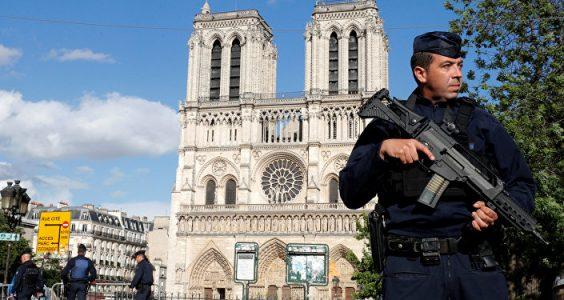
EU countries urged to protect journalists as number of attacks rises
EU governments have been urged by Brussels to take action to protect journalists, after an increase in physical and online attacks on members of the press.
Issuing its first-ever recommendation on journalists’ safety, the European Commission called on EU governments to set up free contact points for media workers who face physical or online threats, in order to ensure a rapid response from police and prosecutors. It also wants to make sure journalists who become victims of crime have assured access to counselling, legal advice and shelters.
According to the commission, 908 journalists and media workers were attacked in 23 EU member states in 2020, resulting in physical and mental injuries, as well as damage to property. The intervention follows a series of high-profile murders that shocked Europe, including the killings of Malta’s Daphne Caruana Galizia and Slovakia’s Ján Kuciak, who both investigated corruption in their home countries. This year, Dutch crime reporter Peter de Vries was murdered on a busy Amsterdam street and Greek investigative reporter Giorgos Karaivaz was gunned down on his way home from work.
Reporters Without Borders (RWB) registered the murder of four journalists in the 10 years before Caruana Galizia’s murder in 2017. EU officials said they were alarmed about an increasing number of attacks.
The commission vice-president, Vĕra Jourová, said that talking to the families of Caruana Galizia and Kuciak had been the most difficult moments of her previous job as EU commissioner for justice, which ended in 2019. “I promised them that I would work to make things change. The recommendations today are a first step in filling that promise.”
In her annual “state of the union” speech on Wednesday, the commission president, Ursula von der Leyen, promised to bring forward a media freedom act in 2022 to safeguard the independence of press and broadcasters, amid growing concerns about some member states.
In Hungary, many independent media outlets have closed or been bought out by pro-government figures. Poland is debating a media bill that would ban companies outside the European Economic Area from majority ownership of any TV channel, widely seen as an attempt to silence the country’s largest independent broadcaster, TVN.
EU authorities have already crossed swords with Slovenia’s prime minister, Janez Janša, who has called journalists liars and “presstitutes” during frequent diatribes against the media.
“It is unacceptable when violence is coming from the mouth of political leaders,” said Jourová, who added that aggressive rhetoric was not only coming from Slovenia.
The commission has limited power in this area, but Jourová promised to keep the pressure up.
“Of course, it’s not legally binding legislation but we will really monitor the situation,” she told journalists. “We will keep the pressure on the member states to do more because what the recommendation is about … is a very strong call on the member states: don’t underestimate the threats and the warning signs that the journalists are under.”
Governments that failed to uphold the safety of journalists damaged their reputations, she added. “It’s in the interests of the member states if they want to be trusted that they are a truly democratic country.”
The commission is urging national authorities to ensure the vigorous prosecution of all lawbreaking, working across borders with other member states or the EU police agency Europol, when necessary. Other recommendations include training for police officers to ensure better protection for journalists covering protests.
The recommendations are directed at the EU’s 27 governments, but the commission hopes EU candidate countries in the western Balkans will take them up.
Observers fear the EU has limited tools to change the behaviour of politicians who revel in aggressive tirades against the media.
Bulgaria is rated as the worst EU member state for press freedom, according to RWB. The group’s World Press Freedom Index also reveals the dismal situation for the media in Hungary (92nd place), Malta (81), Greece (70) and Poland (64).
RWB described the EU recommendations as a step in the right direction but warned about the inability or reluctance of the authorities in some countries to protect journalists.
“Every effort must be made to ensure that these recommendations become a reality,” said Julie Majerczak, the RWB representative to the EU. “We urge the leaders of EU countries to act responsibly and we call on the European Union to demonstrate a determination to ensure that these recommendations are not ignored.”
… we have a small favour to ask. Millions are turning to the Guardian for open, independent, quality news every day, and readers in 180 countries around the world now support us financially.
We believe everyone deserves access to information that’s grounded in science and truth, and analysis rooted in authority and integrity. That’s why we made a different choice: to keep our reporting open for all readers, regardless of where they live or what they can afford to pay. This means more people can be better informed, united, and inspired to take meaningful action.
In these perilous times, a truth-seeking global news organisation like the Guardian is essential. We have no shareholders or billionaire owner, meaning our journalism is free from commercial and political influence – this makes us different. When it’s never been more important, our independence allows us to fearlessly investigate, challenge and expose those in power.
Source: The Guardian





